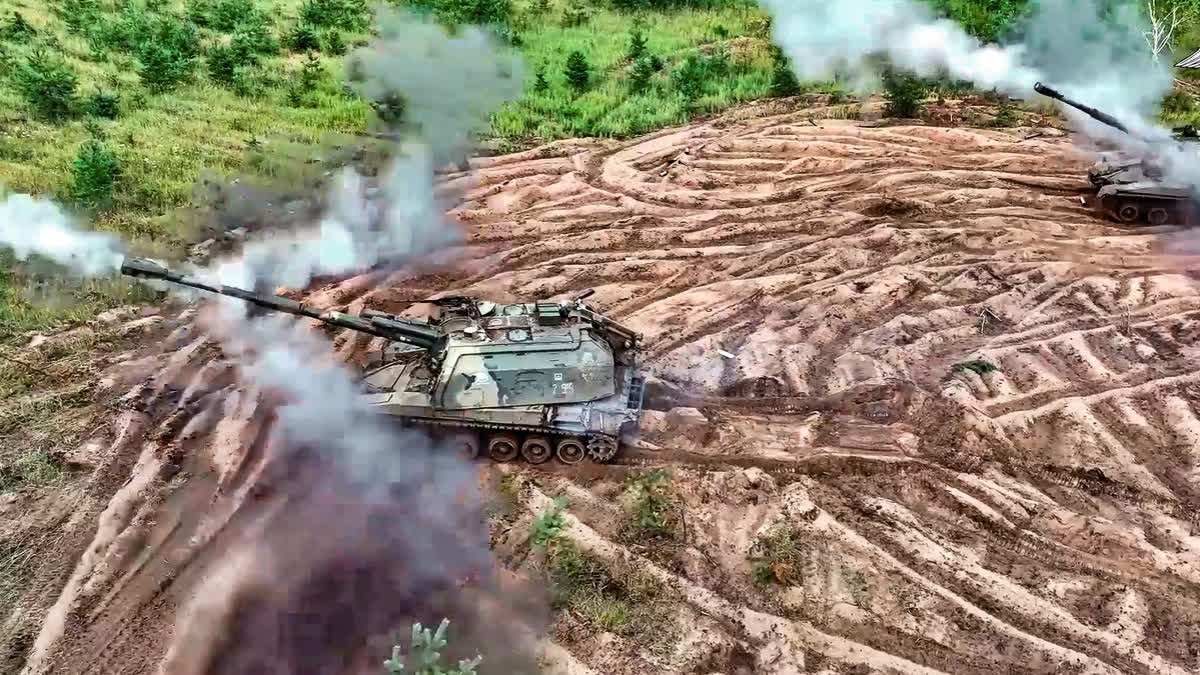New Delhi: Russia's decision to withdraw from the Black Sea Grain Initiative has sent shockwaves through the international community. While the move has been met with condemnation from the UN and several G20 members, it opens up a new chapter in the dynamics of global food security and regional power play.
"Several members condemned it, saying this shouldn't have happened," Finance Minister Sitharaman was quoted as telling reporters following the third meeting of G20 Finance Ministers and Central Bank Governors in Gandhinagar on Tuesday. "Food passing through the Black Sea shouldn't have been stopped or suspended," she said.
In July last year, the UN helped broker a lifesaving deal between Ukraine, Turkey and Russia that enabled Ukraine to resume shipping millions of tons of desperately needed grain exports through the international waters of the Black Sea. The deal unlocked millions of tons of desperately-needed grain and other foods that would otherwise be stuck in Ukraine. The Black Sea Grain Initiative helps people in need across the globe by directly delivering desperately-needed grains to lower-income countries and bringing down food prices.
On Monday, Russia announced that it would no longer guarantee the safety of shipping through the Black Sea. The decision came following blasts on the Kersch bridge, that links Russia to the Crimean peninsula. A furious Russian President Vladimir Putin said that the year-old Black Sea Grain Initiative was detrimental to his country’s interests.
The International Rescue Committee (IRC) has expressed alarm over Russia’s withdrawal from the Black Sea Grain Initiative as “it will be most painfully felt by the 349 million people around the world facing food insecurity today”.
“Approximately 80 per cent of East Africa’s grain is imported from Russia and Ukraine,” IRC President and CEO David Miliband said. “With over 50 million people across East Africa facing hunger at crisis levels food prices up by nearly 40 percent this year. Any disruption to the global food supplies at a time of heightened need could have devastating consequences.”
Also read: Russia launches intense night attacks across Ukraine, targeting southern port city for second night
Russia’s decision may impact India too as it is dependent on large quantities of sunflower oil and fertilisers from Ukraine. Of the 25 lakh tons of sunflower oil that India imports annually, 70 per cent comes from Ukraine.
"The expiry of the Black Sea Grain Initiative, combined with the intensifying Russia-Ukraine conflict, bodes ill for the adequate availability of foodgrain and fertiliser in many regions of the world,” Pradeep Mehta, Secretary-General of Consumer Unity & Trust Society (CUTS) International, told ETV Bharat.
“Many countries in Sub-Saharan Africa are, in varying degrees, import-dependent upon agricultural commodities from this region, particularly wheat,” Mehta said. “The global community must devote all efforts to maintain export supply lines from Ukrainian Black Sea ports falling within the conflict-affected regions and ensure safe passage.”
Describing Moscow’s decision as the latest setback, he said that one of the most disastrous long-term consequences of the ongoing conflict can be on global food security. “For example, vast swathes of cultivable lands in the region have been ruined by landmines," Mehta stated. The disruption of the Black Sea Grain Initiative has ignited discussions within the G20, which India presides over this year, about the need for robust multilateral solutions to address global food security challenges.
Countries are reevaluating the mechanisms in place to ensure stable food supplies during times of crisis, emphasising the importance of collective efforts to mitigate the impact of conflicts on vulnerable populations.
Also read: Putin says Russia has sufficient stockpile of cluster bombs as Ukraine gets its own supply from US



